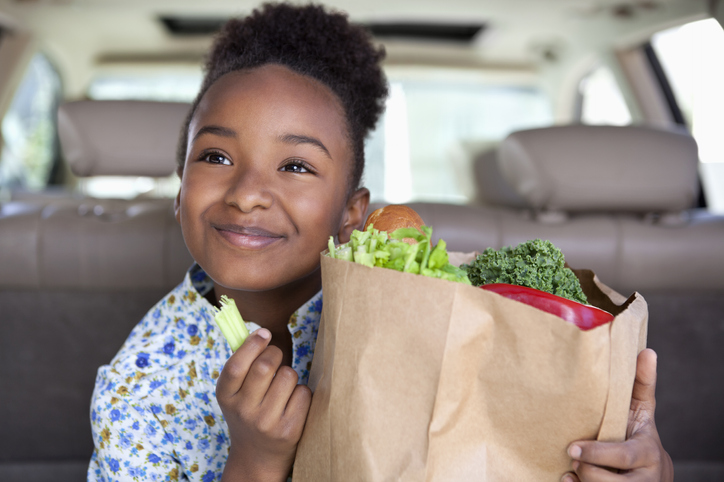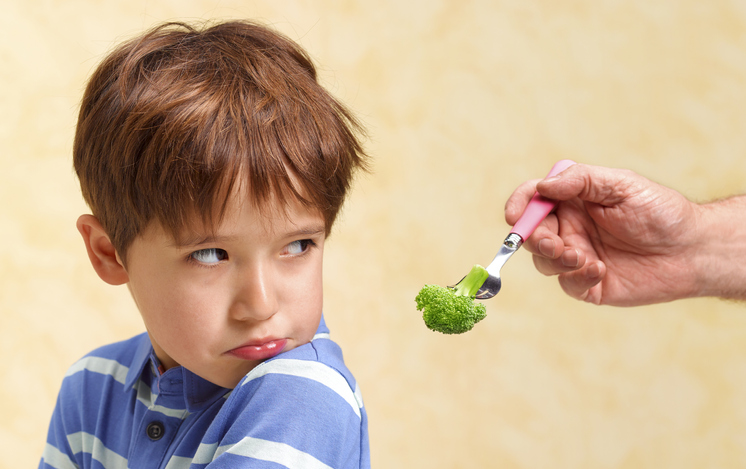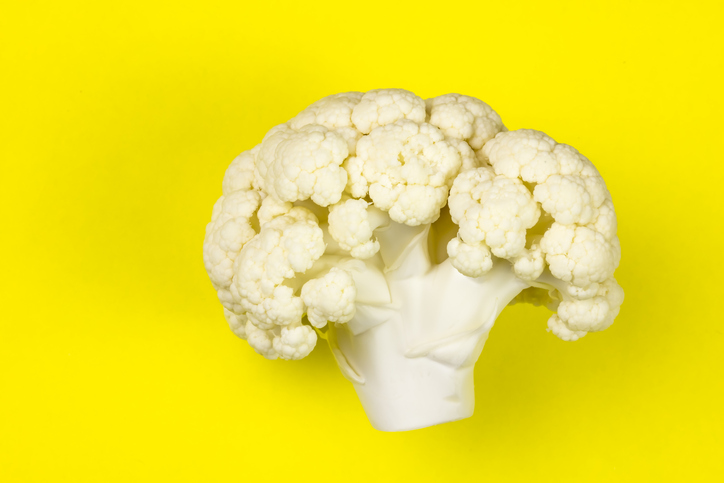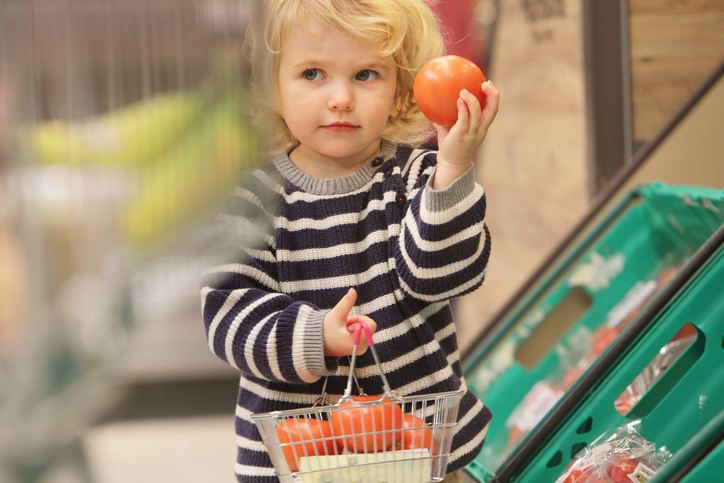7 Tips for Getting Your Child To Eat More Veggies This Year!

By Sydney Kronfle, pH Labs Researcher & Contributor
I am constantly stressed about my two-year-old son’s diet. He’s a good eater and loves fruit, but if I hand him a piece of broccoli or a carrot stick he throws it across the room. Why do so many kids hate vegetables? So frustrating! I know I’m not alone here.
“This is not surprising given children have a natural preference for fruit. At least in part, this is due to its sweetness and texture, whether crispy, crunchy or juicy. The texture of fruit has been linked to a positive sensory experience among children,” according to authors of a Medical Xpress report that discusses vegetable consumption among Australian children.
The report states that only nine percent of Australian children meet the recommended vegetable intake. Around 62 percent of children aged two and older do meet the recommended intake for fruit.

“Very few children in the United States (U.S.) meet the recommended daily intake for produce: less than 50% of children consume enough fruits, and less than 12% consume enough vegetables,” reports the National institutes of Health (NIH).
(In Not So Sweet News, American Toddlers Are Eating More Sugar Than Adults)
In addition to this, a recent report from the Centers for Disease Control and Prevention (CDC) reports that almost half of children in the U.S. do not eat a single vegetable on a daily basis. I’m sad to say that my child often falls into this group. He eats plenty of berries and healthy proteins such as wild-caught salmon, but, again, the veggies are a constant struggle. Sometimes I am able to hide veggies in dishes he eats (I’ll share my cauliflower alfredo sauce shortly!) or make vegetables more palatable by oven frying them, but my goal is for him to really love veggies and eventually understand their importance in our daily diets.
(Children May Not Just Be Picky Eaters. They May Have Food Neophobia)
I have hope that my son’s vegetable intake will get better as he ages. I make it a point to take him to farmers’ markets and spend extra time around the vegetables when we go to the grocery store together, pointing out leafy greens and other veggies. This hope, however, does not mean that I am not extremely concerned about his nutrition now. One of my best friends from college has two toddler sons. She told me not to worry too much about it and that kids get plenty of nutrients from fruit. I felt a lot of relief when she said this, but this does not appear to be accurate information.
“You might be thinking, at least my child is eating fruit. They could be eating no veggies and no fruit. This is true. But while it's great your child loves fruit, vegetables are just as important as part of a balanced eating pattern,” according to the Medical Xpress article.
“If your child is only eating fruit, they are missing some essential nutrients. But the same is true if they are eating only veggies.”
How can we be proactive?Don’t give them options or their go-to foods.
It’s really hard to do, but I have heard several experts say to feed your children what you want them to eat and not what you know they will eat. If they refuse, don’t force it or give in to those foods you know they will consume. Obviously, use your best judgment and consult your pediatrician, but your child will not starve. A child needs to receive the message that the foods they are presented with is what is available and if they don’t eat it this doesn’t mean that they have other options that are more favorable to them. I will admit that I struggle with this a lot, especially at the end of a long day when all I want to do is get that baby good and full and put him to bed!
Get creative in the kitchen.

Anything that is green my son tosses. If it’s avocado (which is a fruit), he takes a few bites and then smashes the rest in his hair! So, I thought, "What is the closest veggie I can get to broccoli that is not green?" Cauliflower! I was unsuccessful in giving him roasted cauliflower. Then I thought about how I could transform cauliflower into a creamy sauce. Like most kids, my son loves macaroni and cheese and pastas in creamy sauce. Try this cauliflower alfredo sauce:
Ingredients:
- 1 head of cauliflower
- 1 cup of grated parmesan cheese
- 1 cup of shredded mozzarella cheese
- 1 cup of chicken broth or milk of your choice (you can use cow’s milk or something plant-based)
- 2 tablespoons of nutritional yeast (optional)
- 2 tablespoons of butter or olive oil
- 1 clove of garlic
- Salt and pepper to taste
Instructions:
Boil the cauliflower until soft. Blend soft cauliflower with other ingredients until you get a sauce-like consistency. You may want to reserve some of the hot water you boil the cauliflower in just in case you need to thin the sauce. Serve over pasta or have your toddler use it as a dip with bread. Make it vegan by omitting animal products and adding more nutritional yeast. There are vegan cheeses, however, these tend to be very processed. Another option is to add cashews to the recipe if your child does not have a nut allergy. This will add fat and richness from a plant-based source.
The Medical Xpress article provides additional ways in which we can be proactive.
Involve your child.
Take them to the grocery store and the farmers’ market. Cook with them. Have them choose a vegetable. This is empowering and exposes them to vegetables in a positive way.

Try sensory learning.
“Try to expose your child to vegetables rather than hiding them. Kids are more likely to eat veggies when they see, smell and feel them. This is called sensory learning.”
I know this is contradictory to my hidden cauliflower alfredo sauce (sometimes you do what you have to do!), but exposure is definitely key even if your child refuses the vegetable or throws it across the room.
Teach your child how to grow food.
Even a few herbs in a potted plant on the window sill counts!
(Herbs & Spices! The Secret To Getting Kids to Eat More Veggies)
(Why You May Want To Start Gardening. Especially If You Have Kids)
“Evidence shows kids are more inclined to try the food they have helped and watched grow.”
(Why Gardening In Schools May Be One Of The Best Lessons For Children)
Be the example.
This is obvious, but probably one of the most important. You can’t expect your kid to eat their veggies if you are not doing the same.
(Parents - Do Not Let Your Stress Cause You To Feed Your Child a Junk Food Diet)
Be persistent.
No matter how many times your child tosses that food, keep giving it to them. I know it’s hard, but you are not failing if they throw the veggies. It's a failure if you don’t try.
Finally, it’s always a good idea to have your child undergo routine nutrient testing. This will usually detect whether your child has any nutrient deficiencies or imbalances. If the results reveal a deficiency or imbalance, you can then discuss with the doctor or pediatrician how you can adjust your child’s diet or possibly implement supplementation.
Enjoy your healthy life!
Disclaimer: This article is not intended to provide medical advice. Please consult with your doctor or another competent healthcare practitioner to get specific medical advice for your situation.
The pH professional healthcare team includes recognized experts from a variety of healthcare and related disciplines, including physicians, attorneys, nutritionists, nurses, and certified fitness instructors. This team also includes the members of the pH Medical Advisory Board, which constantly monitors all pH programs, products, and services. To learn more about the pH Medical Advisory Board, click here.







